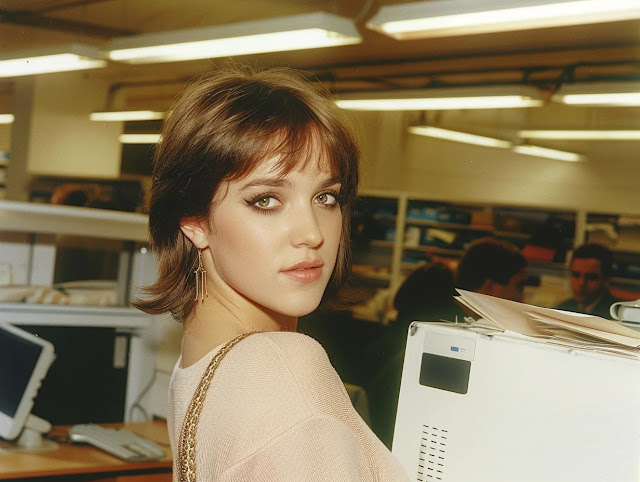It began with a poor performance review. Sitting across from my boss in a glass-walled conference room, I felt exposed as he informed me, “You’re not going to like this.” Panic set in—I had forgotten my tissues. I was hit with a two out of five—a grown-up D. He criticized my management skills and my execution of ideas, expressing disappointment, especially given my initially high acclaim. It was my first time receiving anything other than stellar feedback from a supervisor. I broke down, crying uncontrollably in full view of passersby. The embarrassment was overwhelming; I desperately wanted to leave. Unable to return to my desk, I texted a colleague to discreetly bring me my sweater and purse to the bathroom stall so I could stealthily exit the building.
I spent hours in a newly built miniature park nearby, sobbing uncontrollably—a cry about more than just the review. Sitting on a bench in this ostentatiously designed non-park in downtown NYC, a kind man with a comforting New York accent asked, “You OK, sweethawt? Can I get you anything? Don’t cry!” He bought me a bottle of water from a pretzel cart, gently saying, “Whatever it is, it’ll get better.” I felt foolish crying in public as if I had suffered a grave loss. In a way, I had—I lost my sense of self. Raised in a hustle culture, I equated success with relentless hard work. As an immigrant child, I embodied the “work hard, play hard” ethos and the belief that women could outshine men. I juggled blogging and writing with careers in teaching, organizing, and digital communications. I served as executive editor for Feministing, working tirelessly without significant pay, mentoring writers, and freelancing in journalism until I landed a senior-level job at thirty-seven.
For a decade, I epitomized “fake it till you make it,” advising friends and colleagues endlessly while blurring work-life boundaries. Willing to work long hours, cover for others, and take on tasks outside my job description, I was the quintessential Gen X woman, driven by hard work myths, feeling guilty if not constantly productive. This approach fueled my career but left me exhausted by forty. After the performance review, I returned to the office briefly but called in sick for the remainder of the week, crippled by chest pains and dark thoughts about self-harm. Realizing I was in deep trouble, I confided in my best friend, who urged me to contact my doctor immediately.
My doctor, seeing the severity of my situation, adjusted my medication to manage anxiety and depression while advising a minimum of three weeks off. During this time, I sought refuge at my parents’ home, now a medical hub for my father’s illness. On my mother’s suggestion, I checked into a retreat for the rest of my leave, spending my time in yoga classes seeking solace. Returning to work was awkward, my responsibilities gradually transferred to a new hire with better credentials. In hindsight, the signs were clear even before the review, but at the time, I didn’t understand. Believing I was well-regarded and still contributing significantly, I was blindsided when I was laid off under the guise of a “strategic redirect.”
Following the layoff, I experienced a nervous breakdown, heavily medicated, drinking excessively, and binge eating to numb the pain. Amidst this, I launched a book, pressuring myself to maintain a positive image and fulfill book tour obligations. Four months later, I secured an executive editor role at Teen Vogue, but unresolved issues from my previous job haunted me. Poor work-life balance, emotional instability, and unprocessed trauma plagued my new role.
Public perception was that I had rebounded triumphantly, but internally, I struggled. The job was consuming, leaving no time for personal life. Despite feeling perpetually exhausted, I convinced myself that this was the price of success. The pandemic, forcing me to slow down, revealed the toll my lifestyle had taken. Moving upstate with my mother, enjoying nature’s tranquility, and reassessing my values, I realized how misaligned my goals were with my well-being. I had been relentlessly chasing other people’s definitions of success without acknowledging my own needs.
Quitting Teen Vogue in March 2021 was a turning point. I sought creativity over the corporate rat race, despite financial challenges and the constant hustle for income. Even now, taking days off remains a struggle, and the quest for balance continues. The notion of “making it” now seems mythical as I grapple with redefining success and striving for happiness. While I am still heavily burdened by ambition, I am slowly constructing a new narrative for my life.
In summary, I’ve learned that achieving success means different things at different times, and it’s crucial to prioritize one’s mental and physical health over society’s relentless standards. Accepting this is part of my journey toward genuine fulfillment.

